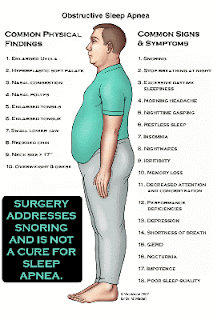Insomnia statistics - Effects
of Insomnia Shown In Statistics
Insomnia
is a sleep disorder that affects millions, and there are various astounding
insomnia statistics about the insomnia
effects. According to well-researched facts, about 55 percent and more adults
face a problem with insomnia, and the number is growing every day. Among these
adults, more than 93 percent agree that this disorder can affect the performance
of their work the next day.
In the
West, more than 60 million individuals have insomnia, and the number is growing
every day. Women are also more prone to this sleep disorder than men. About 40
percent of women suffer from insomnia and about 30 percent of men are affected.
It is stated based on research that more than 90 percent of individuals who
seek treatment for insomnia statistics end up getting hospitalized. By learning
and understanding what insomnia is all about, how many people it affects, you
will be learned about the disorder if you have it.
Insomnia
statistics is a rather perplexing disorder. If you truly want to cure insomnia,
you have to first equip yourself with the knowledge of insomnia. At the same
time, learn about what are the methods to cure insomnia. Discover proven
techniques that will help you cure insomnia faster and safer at
InsomniaSymptoms.org and you can also enjoy restful, deep sleep very soon.
Insomnia is one of the biggest problems for many people. It affects
almost every body from time to time. A lot of people hesitate to go to a doctor
for such seemingly trivial issues such as sleep aids. The majority of sleep
medicines can be addictive and even cause a lot of side effects.
There
are different kinds of insomnia, and you should know what kind of insomnia you
suffer from, before you choose any sleep medicines. If you have been having a
problem to sleep for more than a month, then you probably have chronic
insomnia. You can take allopathic medicines or even natural herbal supplements.
You should start with a low dose of the sleep aid.
Most
pharmaceutical companies manufacturing pain relievers have also launched some
non-prescription sleep aids that help people to get relief from insomnia statistics.
The non-prescription sleep medicines are designed for a short-term duration
only. If taken regularly, then they can create many side effects. Melatrol is a
drug free solution and it helps maintain healthy sleep cycle.
Insomnia Effects on Marriage
Unfortunately effects of insomnia are spread
over a wide spectrum of everyday life; they affect physical health,
intellectual performance, emotional states of mind, and also relationship and
marriage. Insomnia effects create significant negative changes in behavior,
moods, responses, functioning, perspectives, etc.
The
insomniac is often unpleasant to his colleagues, family members, spouse,
friends, and strangers. He is nervous, low of vitality and energy, suffer from
low moods, tired all the time, grumbling, gets irritated easily, and more.
Effects of insomnia on physical condition are also an obstacle to marital
satisfaction, the spouse who suffers from sleeplessness is always exhausted,
never energetic or enthusiast to do fun together, whether it is sex, a
vacation, or meeting friends.
Sleep
deprivation effects on mental states and points of view are no less harmful for
marriage. Insomnia statistics shows that single, widowers, divorced people,
suffer more from insomnia; it might be due to loneliness, but for the divorced
the connection might be the opposite; i.e., their sleeping disorder and its
outcomes were a major factor of the divorce.











